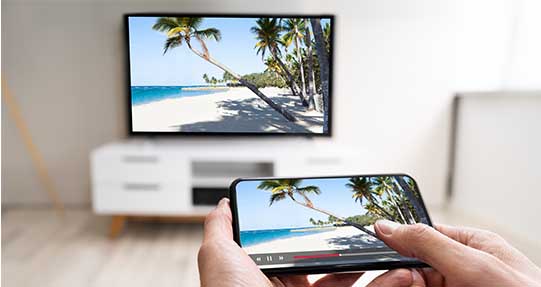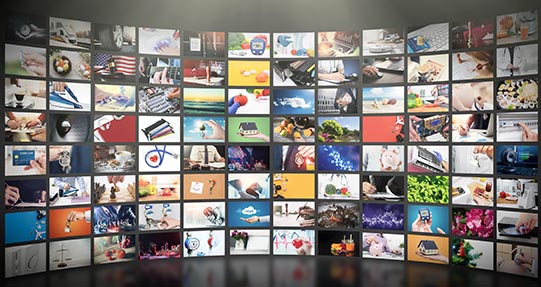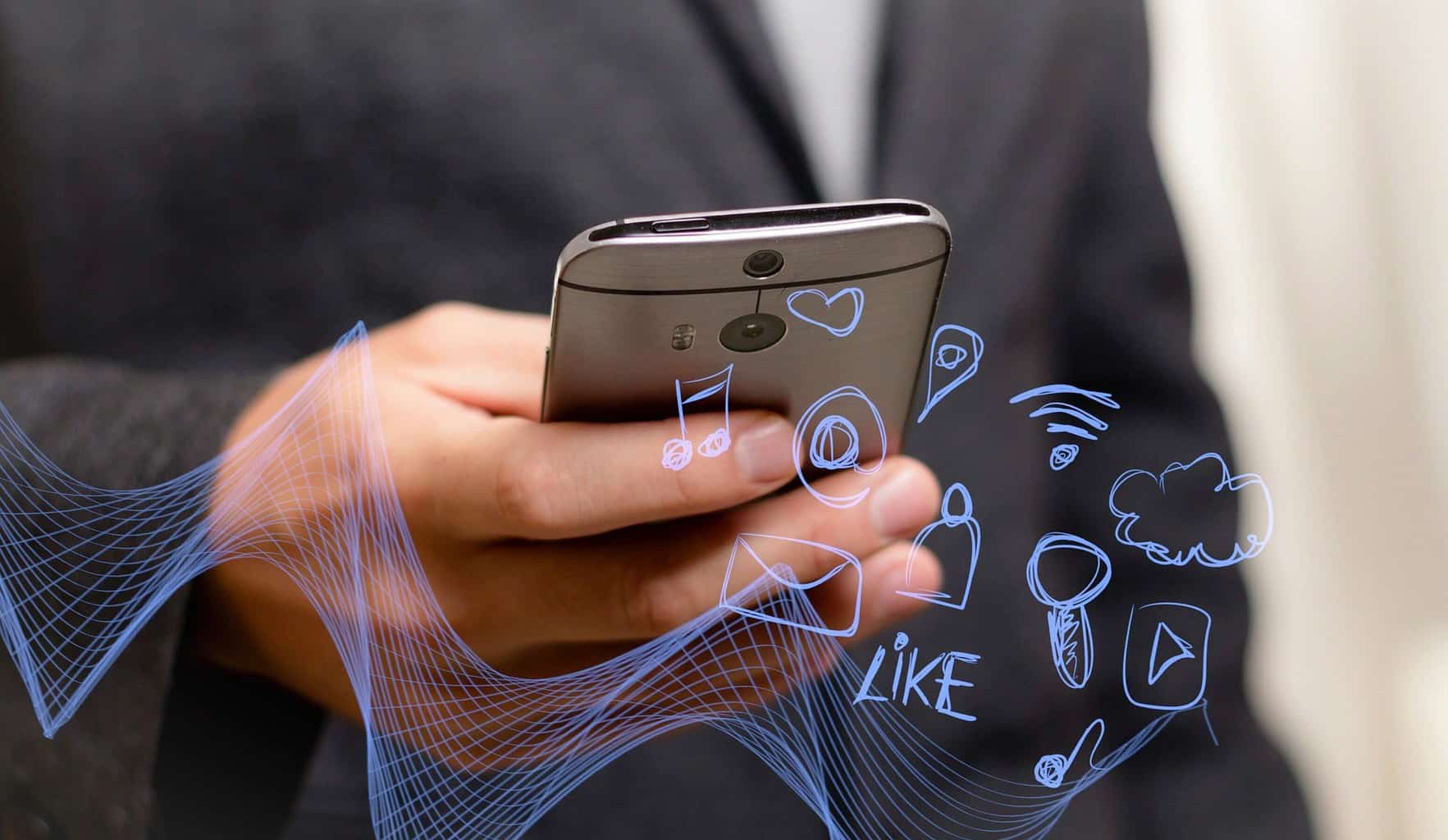What Are The Best TV Casting Solutions For Hotels?
Let’s face it, it’s the Information Age, and our lives revolve around the Internet. The omnipresence of smart devices and streaming platforms has made it a must for hoteliers to adapt and upgrade their services. Especially when it comes to in-room entertainment. Long gone are the days when guests were satisfied with expensive cable subscriptions.
Welcome to the era of casting for hotels – an epoch where guests get to watch content from their own devices on hotel TVs seamlessly.
Chromecast: The Casting Maverick
The Costs and Compatibility
Google’s Chromecast, priced modestly at $35, is an affordable gateway to upgrading hotel rooms into a hub of personalized entertainment. This casting technology marvel is compatible with most smart TVs, Android devices, and iOS. As long as there’s an HDMI port on your hotel TV, the Chromecast will connect.
The Feature Set
One of the biggest advantages of Chromecast is its ability to mirror screens. The beauty of this feature is that it allows guests to cast the same content they were enjoying on their mobile device or laptop directly onto the in-room TV. And guess what? Their device doubles up as a remote control too!
Roku Streaming Stick: The Entertainment Powerhouse
The Costs and Compatibility
Stepping up the game in the world of hotel TV casting solutions is the Roku Streaming Stick. Priced slightly higher at $50, it supports most smart TVs and is compatible with Android and iOS devices.
The Feature Set
Roku goes beyond just screen mirroring and introduces 4K support. With this little gadget, your guests can stream popular apps and cast content from their devices in stunning 4K quality. It’s like having a mini-cinema right in the room!
Amazon Fire Stick: Your Personal Assistant
The Costs and Compatibility
Amazon Fire Stick, another formidable player in the hotel casting market, rings in at $40. Like its counterparts, it is compatible with most smart TVs and operates smoothly with Android and iOS.
The Feature Set
Aside from the usual screen mirroring and mobile remote control, the Amazon Fire Stick brings in Alexa, the voice-controlled assistant. Imagine your guests controlling their TV entertainment just by speaking; wouldn’t that be something?
Hotel Wi-Fi Infrastructure: The Unsung Hero
The success of TV casting solutions in hotels, however, doesn’t solely rely on casting-enabled gadgets. The hotel’s Wi-Fi infrastructure plays a crucial role. It needs to have adequate bandwidth to support multiple devices. It’s also important that a secure connection is maintained to protect guest devices and their data.
Of course, the limitations of the Wi-Fi network, such as the number of concurrent users and their usage, also come into play.
Hotel TV Interface: The Gateway to Entertainment
The hotel TV interface can make or break the guest experience. For instance, it should be user- friendly and, ideally, offer a separate login for guests to maintain a secure environment.
Including QR code technology can streamline this process, making connections effortless for guests.
Casting the Future: The Final Takeaway
With the advent of TV casting solutions, hotels have the opportunity to revolutionize in-room entertainment, offering an enhanced guest experience. The shift from traditional cable subscriptions to casting solutions aligns with the transition to on-demand content consumption in the age of streaming services.
As more and more people prefer to watch movies and shows from their personal devices, it’s time for hoteliers to catch up and cast a new light on in-room entertainment. By doing so, they’ll not only increase guest satisfaction but also solidify their place in the ever-evolving hospitality industry of the Information Age.
FAQs
Why should hotels invest in TV casting solutions?
TV casting solutions for hotels provide a secure and intuitive way for guests to enjoy their content, improving guest satisfaction and making them feel more at home.
Are these casting solutions compatible with all hotel TVs?
Most casting solutions require a smart TV with an HDMI port. However, it’s best to contact the provider for specific compatibility information.
Can guests connect to multiple devices simultaneously?
While most casting technologies allow connection from multiple devices, the actual number might be limited by the hotel’s Wi-Fi infrastructure and the specific casting solution.
How secure are these hotel casting solutions?
Providers of casting solutions for hotels prioritize secure connections, often requiring additional logins or utilizing encrypted casting technology.
How does allowing guests to use casting buttons on their phones enhance in-room entertainment?
By allowing guests to use the casting button on their phones, they can cast their own content from various video streaming services directly to the in-room televisions. This not only enhances the in-room entertainment experience but also makes guests feel at home during their stay.
What makes Chromecast Hotels and Google TV unique among hotel cast solutions?
Chromecast Hotel, coupled with Google TV, is a casting solution specifically designed for hotels. This combination enables guests to access and cast their content from their devices via a user- friendly interface, providing a more personalized in-room entertainment experience.
How does hospitality casting improve the experience for Hotel Guests?
Hospitality casting allows guests to seamlessly cast content from their phones or laptops to the in-room televisions. This means guests can watch their favorite shows or movies on a bigger screen, making their stay more enjoyable and comfortable.
How important is hotel Internet access for TV casting solutions?
Hotel Internet access is crucial for the effective operation of TV casting solutions. A robust and reliable Wi-Fi network ensures that guests can smoothly stream their own content without any buffering or connectivity issues.
What role does Internet Protocol Television (IPTV) play in TV casting?
IPTV systems provide a platform for delivering TV services over the internet. Regarding TV casting, IPTV enables the integration of casting solutions with in-room televisions, enhancing the guest’s streaming experience.
How do application layer protocols and application software ensure a smooth casting experience?
Application layer protocols and software help establish a connection between the guests’ phones and the in-room television. They ensure data is correctly sent and received, enabling a seamless casting experience.
What security measures are typically in place for these casting solutions?
Most TV casting solutions prioritize application security. They are designed to protect the guest’s personal information, with protocols to automatically remove their login information from the system once they check out.
Can these casting solutions be implemented in assisted living facilities as well?
Yes, TV casting solutions are versatile and can be implemented in various settings, including assisted living facilities. This allows residents to enjoy their preferred content from streaming media platforms on communal televisions, enhancing their living experience.
Do hotels require special equipment to set up these TV casting solutions?
Hotels typically require smart TVs that support casting and a casting device like Google Chromecast. They also need a robust Wi-Fi network to support streaming. Other than that, no special equipment is required as these solutions leverage online services and content distribution.
How have TV casting solutions changed the mass media technology landscape in hotels?
TV casting solutions have transformed the mass media technology landscape in hotels. These solutions allow for personalized content consumption, moving away from the traditional one- size-fits-all approach of cable TV. This on-premises software innovation aligns with the shift towards online content consumption, giving hotels an edge in providing a superior guest experience.
Glossary of Related Terms
| Related Term |
Definition |
| Accessibility |
Refers to the design of products, devices, services, or environments for people who experience disabilities. In terms of TV casting solutions for hotels, it implies easy access and usability of the casting service for all guests, regardless of their technical abilities or disabilities. |
| Assisted Living |
A housing option for elderly or disabled people that provides nursing care, housekeeping, and prepared meals as needed. TV casting solutions in such settings allow residents to enjoy personalized entertainment, enhancing their living experience. |
| Authentication |
The process of verifying the identity of a user. In the context of TV casting in hotels, guests usually authenticate their identity through passwords by logging into their personal accounts on their devices to access their casting services and content. |
| Cast Solutions |
Technologies that enable a user to project content from a device onto another screen. In a hotel setting, cast solutions allow guests to stream content from their phones, tablet or laptops to the in-room television. |
| Communication |
Involves the exchange of information. In the context of TV casting, communication occurs between the guest’s device and the hotel’s television, enabling the transfer of streaming data. |
| Customer |
In a hotel setting, the customer refers to the guest. The TV casting solutions aim to enhance the customer’s experience by providing personalized in-room entertainment. |
| Cyberspace |
This refers to the digital ecosystem of interconnected information systems or the “virtual” world of computer networks. The casting solutions in hotels exist in this cyberspace, connecting devices and TVs for a seamless entertainment experience. |
| Digital Technology |
Involves the use of digital or computerized devices to carry out various tasks. TV casting solutions are a part of digital technology that has transformed the hospitality industry, providing guests with superior in-room entertainment. |
| Electronics |
Refer to devices utilizing electronic components to function. In a hotel setting, electronics like smart TVs and Chromecast devices are crucial for implementing TV casting solutions. |
| Equipment |
This refers to the necessary items for a particular purpose. For TV casting in hotels, the equipment generally includes smart TVs, casting devices like Google Chromecast, and a stable Wi-Fi network. Also a user device like a phone or tablet. |
| Film and Video Technology |
This relates to technologies used in the creation and consumption of film and video content. TV casting solutions fall under this, allowing hotel guests to consume their own film or video content. |
| Google Chromecast and Google TV |
These are specific casting and streaming devices and platforms developed by Google. Many hotels use them as their preferred casting solutions due to their ease of use and compatibility with numerous streaming platforms. |
| IPTV |
Internet Protocol Television (IPTV) is a system where television services are delivered over the Internet. IPTV plays a significant role in hotel entertainment systems, enabling integration with casting solutions. |
| Mass Media Technology |
This term encompasses technologies used to reach a large audience via mass communication. In hotels, TV casting solutions represent a form of mass media technology, as they provide customized content to a wide range of guests. This would be the same for features in a hospitality casting solution. |
| On-Premises Software |
This refers to software that is installed and operated from a customer’s in-house server and computing infrastructure. TV casting solutions in hotels can be seen as on-premises software, as they are installed and operated within the hotel’s network. |
| Online Content Distribution |
It is the distribution of content such as TV shows, movies, or music over the Internet. A TV casting solution for hotels or solution for hospitality leverages online content distribution, allowing guests to cast content from streaming services. |
| Online Services |
These are services offered over the Internet. In the context of TV casting, streaming platforms like Netflix, Hulu, and YouTube are online services which guests can cast from their devices to hotel TVs. |
| Personal Digital Assistants (PDAs) |
PDAs are handheld devices with computing capabilities. Although the term is a bit dated and more commonly refers to smartphones, guests can use these devices to control and cast content on the in-room televisions. |
| Phone |
In the context of TV casting, a phone (more commonly a smartphone) is often the device from which guests cast their content to the in-room television. |
| Property Management System (PMS) |
A PMS is software used in hospitality to manage guest bookings, on-site services, billing, and more. Some advanced PMS can integrate with TV casting solutions, enhancing guest experience through personalized offerings. |
| Service Industries |
These are businesses that provide services to customers, including hotels. TV casting solutions are an emerging service provided by hotels to enhance the guest experience. |
| Streaming Media |
Streaming media refers to multimedia that is delivered and consumed in a continuous manner from a source. TV casting solutions in hotels enable guests to stream media from their personal devices to the in-room TV. |
| Television |
A hardware device used for viewing video content. In hotels, televisions with casting technology form the receiving end of TV casting solutions. |
| TV Screen |
The part of the television where images and videos are displayed. With TV casting solutions, guests can see their streamed content displayed on the larger in-room TV screen. |
| Video Streaming Services |
These are online services that provide a wide range of movies, TV shows, and more to stream on demand. Hotel guests can cast content from these services to their in-room televisions for enhanced entertainment. |
| Web Content |
Information found on websites. Through TV casting solutions, web content, particularly from streaming sites, can be viewed on the in-room television. |
| Wi-Fi Networks |
Wireless networks that connect devices to the Internet. In the context of hotels, a robust Wi-Fi network is essential for a seamless TV casting experience. |
| World Wide Web |
An information system where web resources are identified by URLs. The World Wide Web facilitates various online services, including video streaming services integral to TV casting solutions. |





